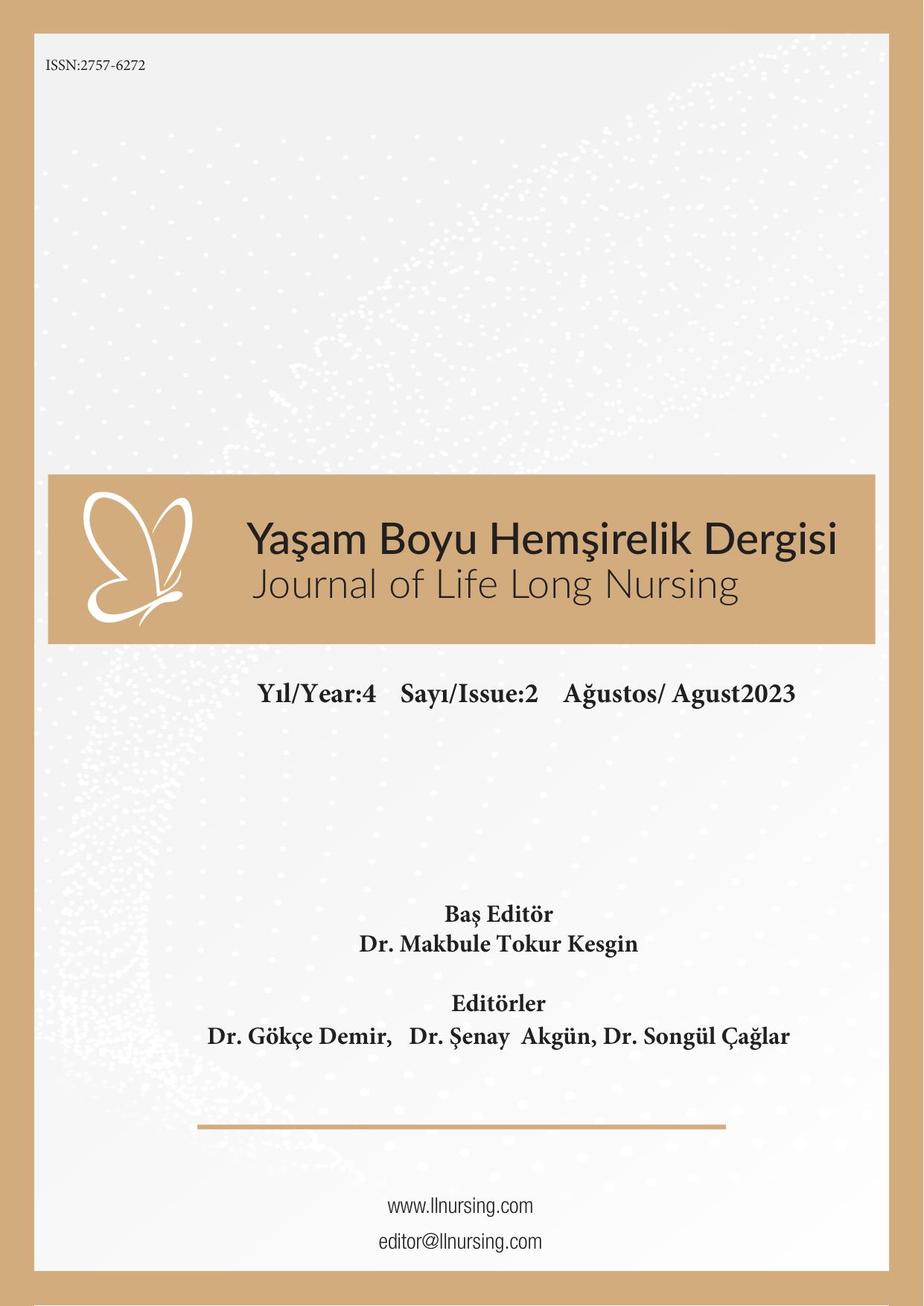Author :
Abstract
|
Amaç: Bu çalışma, hemşirelerin iş yaşam kalitesini etkileyen faktörleri belirlemek amacıyla tanımlayıcı olarak yapılmıştır. Gereç ve Yöntem: Araştırmanın evrenini Şanlıurfa il Merkezinde yer alan üç sağlık Bakanlığı ve bir Üniversite hastanede çalışmakta olan 1310 hemşire oluşturmaktadır. Örnekleme gidilmeden evrende yer alan bütün hemşireler ulaşılması hedeflenmiştir. Geri dönen veri toplama formlarından eksik doldurulanlar çıkarıldıktan sonra 676 formla (%51,6) çalışma tamamlanmıştır. Bulgular: Hemşireler iş yaşamı kalitesi ölçeğinin en düşük puan ortalamasının X±SS=2,69±0,48 ile iş koşuları alt boyutu, en yüksek puan ortalamasının X=3,52±1,00 ile yönetici ile ilişkiler alt boyutu ve toplan puan ortalamasının da X=3,17±0,58 olduğu saptanmıştır. Hemşirelerin yaş grupları, medeni durum, eğitim durumu, çocuk sayısı, çalıştıkları kurum, bulunduğu görev, çalıştığı birim, kadro durumu, mesleğini sevme, şiddete maruz kalma, çalıştığı kurumda kariyer hedefi, yöneticilerin adaletli olma durumu ve kurumda alınan kararlarda fikir alma durumu ile Hemşirelerin İş Yaşam kalitesi Ölçeği puan ortalamaları arasında ise istatistiksel olarak anlamlı bir farklılık saptanmıştır (p<0,05). Sonuç: Hemşirelerin iş yaşam düzeylerinin ortalamanın üstünde olduğu, iş koşullarının hemşirelerin iş yaşam kalitesini düşüren faktörlerden bir olduğu görülmüştür. Hemşirelerin çalıştıkları kurumda; kariyer hedefini olması, alınan kararlarda fikrinin alınması, yöneticilerin adil davranması hemşirelerin yaşam kalitesi puanını arttırdığı belirlenmiştir. |
Keywords
Abstract
|
Objective: This descriptive study was conducted to determine the factors affecting the quality of nurses' working life. Materials and Methods: The population of the study consisted of 1310 nurses working in three hospitals of the Ministry of Health and one university hospital in the city center of Şanlıurfa. The aim was to reach all nurses in the population without random sampling. After removing the incomplete forms from the retrieved survey forms, the study was completed with 676 forms (51.6%). Results: It was found that the lowest mean score of the quality of work life scale was X±SS=2.69±0.48 in the working conditions subdimension, the highest mean score was X=3.52±1.00 in the relationships with supervisor subdimension, and the overall mean score was X=3.17±0.58.A statistically significant difference was found between nurses' age groups, marital status, educational status, number of children, the institution they worked in, the position they held, the unit they worked in, staff status, liking their profession, exposure to violence, career goal in the institution where they worked, the fairness of the managers and involvement in decision-making processes in the institution and the mean scores of the Nurses' Quality of Work Life Scale (p<0.05). Conclusion: It was observed that the work life levels of the nurses were above the average, and work conditions were one of the factors that reduced the quality of work life of the nurses. It was determined that having a career goal, having an impact on the decisions taken, and fair behavior of the managers increased the quality of life score of the nurses in the institutions where the nurses worked. |
